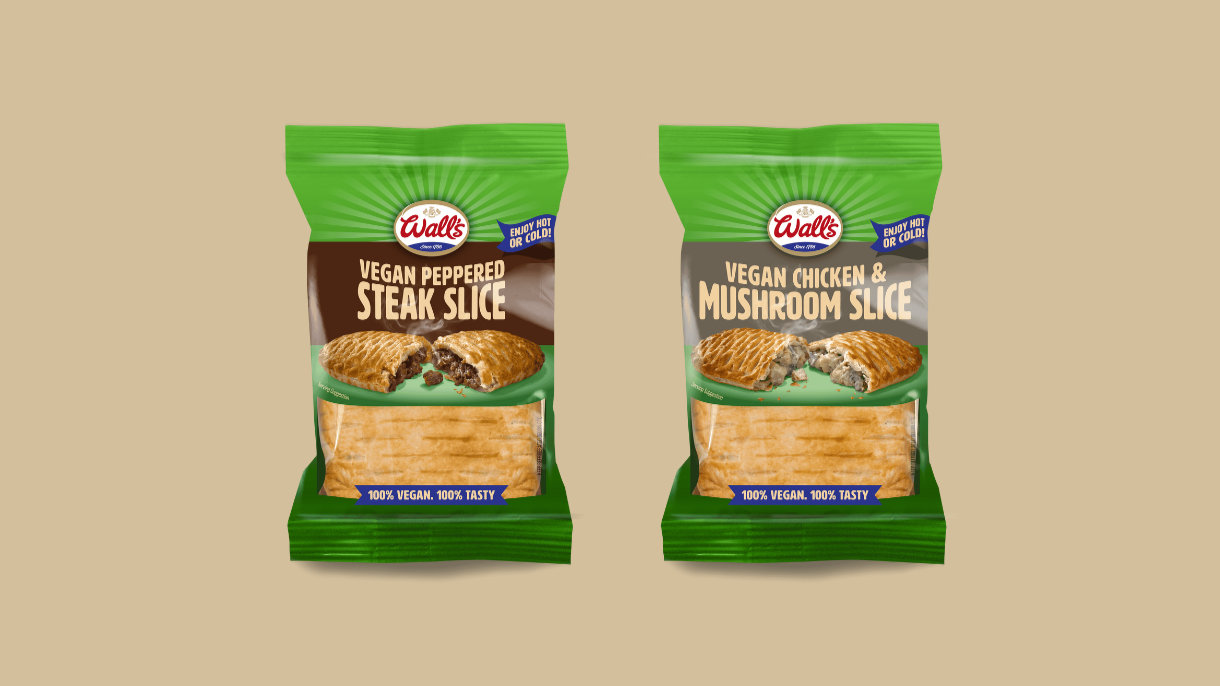Virtually all plant-based meat and dairy categories are declining sharply in units and dollar sales, as the industry grapples with a path forward following high-profile market misses and startup struggles.
Frozen and refrigerated plant-based meat alternatives – worth $782.3 million and $349.7 million, respectively – declined in both dollars and units sales for the the year ending April 20, according to Spins data. Frozen plant-based meats declined 5.3% in dollars and 7.8% in units, while refrigerated alt proteins dipped 12.1% in dollars and 14.4% in units.
Among the greatest drops, refrigerated plant-based burgers fell 26% in dollars and 34.2% in units, while frozen plant-based dinner sausage declined 16.8% in dollars to $3.3 million and 19.6% in units for the the year ending April 20, according to Spins. Additionally, refrigerated plant-based meatballs dipped 21.3% in dollars to $6.1 million and 24.8% in units.
Refrigerated plant-based nuggets, strips and cutlets; dogs; and seitan were the only plant-based meat categories that experienced both dollars and unit growth.
Refrigerated plant-based nuggets, strips and cutlets grew 8.3% in dollars to $27.7 million and 3.8% in units, while refrigerated plant-based dogs’ dollar sales grew 1.9% to $25.6 million and units increased 2.4%, for the year ending April 20, according to Spins.
Refrigerated seitan units outpaced refrigerated plant-based nuggets, strips and cutlets in unit growth – increasing 4.2% – but lagged them in dollar sales only growing by 1.7% to $7.5 million, for the same period.
The alt meat market struggles
Slumping demand for plant-based meat is pressuring major players, like Beyond Meat, as startups struggle to find capital to stay a float.
Last week, Beyond Meat posted another quarter of loses, where net revenues declined 9.1% year-over-year or $1.1 million. Days earlier, mycelium company Meati – once valued at $650 million – handed over control of its company to an attorney for an eventual sale of $4 million.
“Beyond Meat tried to create a mass market with significant spending from investors, but like everything, it hit its cap. The point of their IPO was to raise capital with less accountability from shareholders, but this backfired as the market turned on it two and some years ago, showing that they need more fiscal responsibility, but that did not drive the company to significant changes,” Miri Eliyahu, consultant of syndicated research at Euromonitor International, said in a previous article.
Last week’s announcements follows several exits in the plant-based market in the first quarter of 2025. Unilever sold plant-based meat brand Vegetarian Butcher to Netherlands-based Vivera in March, as part of the conglomerate’s portfolio clean-up efforts.
Additionally, plant-based meat and comfort food startup Blackbird Foods sold to private equity firm Ahimsa Companies on Feb. 17, after a crowdfunding campaign failed to buoy the company.
Soy and coconut milk soften losses
Initially insulated from plant-based meat headwinds, the plant-based milk category is experiencing fresh declines across refrigerated and shelf-stable segments,.
The refrigerated plant-based milk market was worth $2.4 billion, declining 4.1% in dollars and 4.5% in units, for the year ending April 20. Additionally, the shelf-stable plant-based milk was worth $308.92 million, dropping 2.9% in dollars and 4.7% in units, for the same period.
Coconut milk was the only plant-based dairy product that grew in dollars and units across refrigerated and shelf-stable options. Refrigerated coconut milk grew 15.6% in dollars and 12.4% in units, while shelf-stable options increased 28.2% in dollars and 33.2% in unit, for the year ending April 20, according to Spins.
FoodNavigator-USA webinar on plant-based meat
Beyond Meat Founder and CEO Ethan Brown will discuss the plant-based meat company’s rebound efforts during a fireside chat during a FoodNavigator-USA webinar on May 28. Visit the event registration page here to learn more about the event.
Additionally, refrigerated soy milk eked out 0.7% in unit growth and dollar sales increased by 2.7%, while its shelf-stable counterpart experienced 8.2% in dollar growth while dropping 0.2% in units.
Plant-based milk brands shared their latest innovations at Natural Products Expo West earlier this year in attempt to reverse these declines.
Plant-based milk newcomer Whole Moon released a whole coconut and soy beverage at the event, while Elmhurst 1925 is exploring products outside the milk category. Milkish showcased its watermelon seed-based milk at Fancy Food Show and Expo West.
Plant-based cheese market melts down
The plant-based cheese category similarly declined, while shredded options tapped into consumer demand for convenient plant-based products.
Refrigerated shredded plant-based cheese are keeping pace with its animal-based counterpart, growing 1.2% in volumes compared to 1% for animal-based products, for the year ending April 20, according to Spins. However, shredded plant-based cheeses declined 1.5% in dollar sales for the same period.
Additionally, refrigerated plant-based sliced and snack cheese declined 11.2% in dollars and 9.9% in units for the year ending April 20. In comparison, animal-based sliced and snack cheese grew 0.6% in dollars and 1% in units, for the same period.
Despite the category slowdown, ingredient companies are innovating to recreate the taste and texture of animal-based cheese. This week, flavor house T. Hasegawa released its Plantreact flavors for plant-based dairy and meat products, which leverages chemical processes to recreate the creamy mouthfeel of dairy products.



